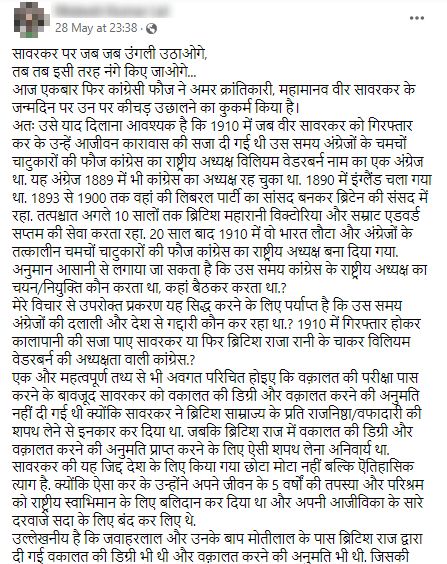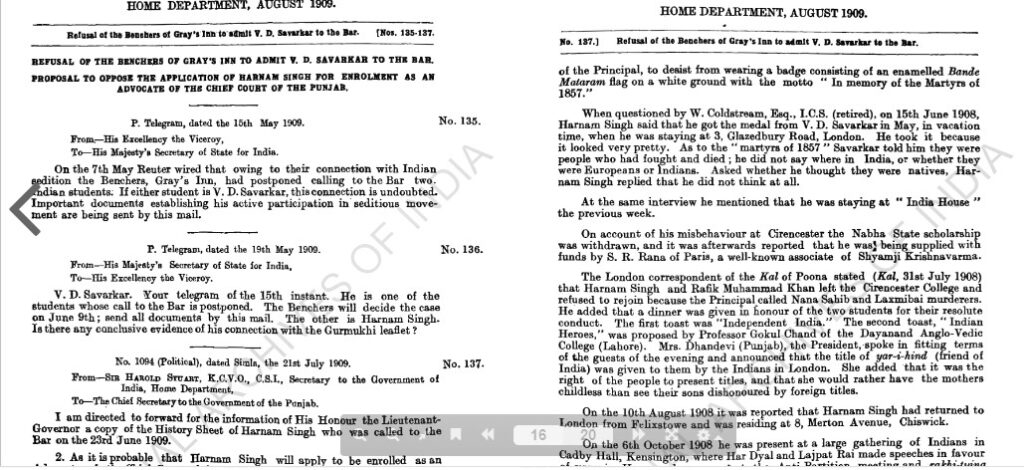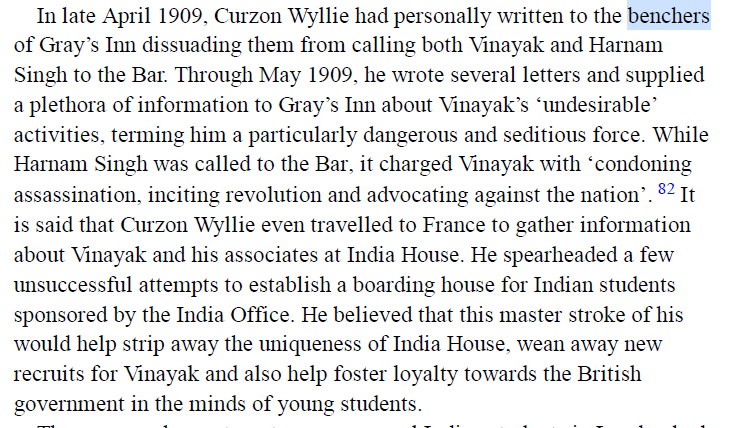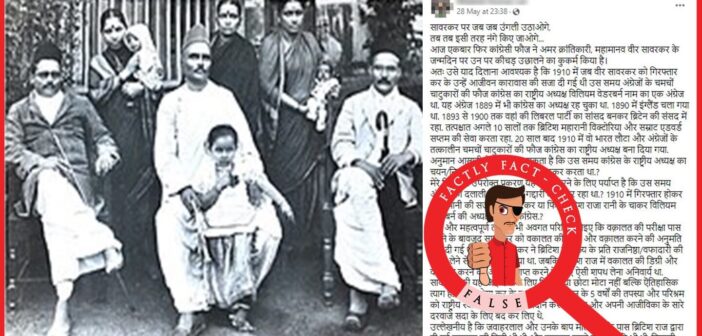A social media post praising Savarkar claims that despite appearing for the exam and completing his studies, the British authorities denied Savarkar the barrister degree and law practice because Savarkar refused to take the oath of allegiance/loyalty to the British Empire. The post further states that in the British Raj, it was mandatory to take such an oath to get the degree of advocacy and permission to practice. Through this article let’s fact-check the claim made in the post.

Claim: British authorities denied Savarkar the barrister degree and law practice, because Savarkar refused to take the oath of allegiance/loyalty to the British Empire.
Fact: Savarkar was denied admission to the bar at Gray’s Inn because of his involvement in political activities. Historical documents endorsed the same view. Biographies of Savarkar also mentioned it is his involvement in political activities cost him admission to the bar. Hence the claim made in the post is FALSE.
Born in 1883 in Bhagur village, Vinayak Damodar Savarkar received his early education at the nearby Shivaji High School before joining Ferguson College in Poona in 1902. Subsequently, he obtained a scholarship and embarked on his journey to England, where he pursued law at Gray’s Inn College.
While it is true that Savarkar passed his examination for the bar at Gray’s Inn and was denied admission as claimed in the viral post, however, it is not because of his denial to take an oath to the British empire, but because of his involvement in political activities. According to the historical documents available on the India Culture portal, in July 1909, benchers at Gray’s Inn College postponed the admission of Savarkar to the bar, considering his active participation in seditious activities, back in India.

Even in the biography of Savarkar, Vikram Sampath endorsed that it is his involvement in political activities that cost Savarkar entry to the Bar at Gray’s Inn. He went on to write that Curzon Wiley, an official of the British Indian Government, had personally written to the benchers of the Gray’s Inn dissuading them from calling Savarkar to the Bar. He even provided a plethora of information about Savarkar’s undesirable activities.

The English Heritage portal of the UK highlighted that Savarkar was called to the bar in 1910. However, we could not find any additional evidence to corroborate this. But the available evidence suggests that viral contestation about Savarkar’s bar entry is not true.
To sum it up, Savarkar was denied admission to the bar at Gray’s Inn because of his involvement in Political activities.



